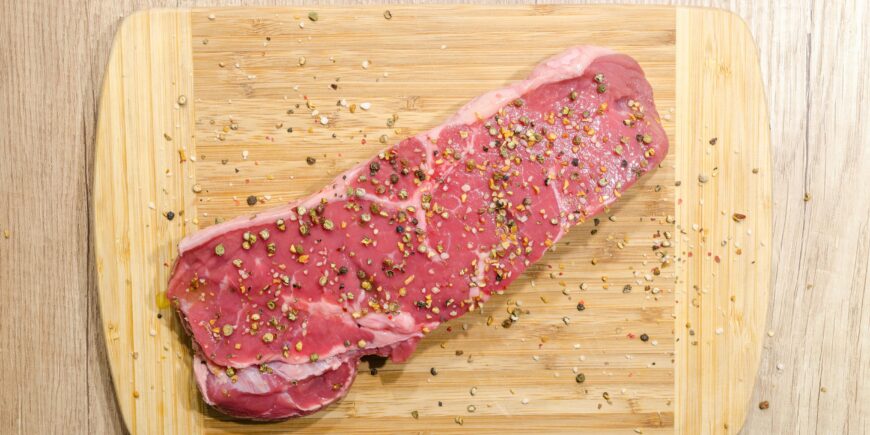The carnivore diet, which consists solely of animal products like meat, dairy, and eggs, has garnered both supporters and critics. While meat enthusiasts champion its benefits, plant-based advocates often voice concerns. Recently, Harvard medical student and researcher Nick Norwitz released a video addressing eight myths surrounding the carnivore diet.
Norwitz, who has a PhD in metabolic health and is finishing his medical degree, aims to share his passion for science with a broader audience. Below are his eight myths, along with insights from other health experts.
Myth 1: There Is No Evidence for the Carnivore Diet
Norwitz highlights several studies that suggest benefits from the carnivore diet, including a Harvard study of 2,029 participants, which reported high satisfaction and improvements in various health conditions. His own research indicated that the diet may alleviate inflammatory bowel disease and restrictive eating disorders. However, he notes the need for randomized controlled trials before conventional medicine can fully endorse the diet.
Myth 2: The Diet Increases the Risk of Scurvy
Concerns about vitamin C deficiency on a carnivore diet are common. While it’s challenging to meet the recommended daily allowance solely through meat, Norwitz points out that fresh, grass-fed beef contains small amounts of vitamin C. He conducted a six-month experiment on the diet and found his vitamin C levels normal, suggesting that deficiency is not a guaranteed outcome.
Myth 3: Lack of Fiber Will Cause Constipation
While the carnivore diet results in lower fecal mass, Norwitz asserts that you will still experience bowel movements. Some studies indicate that eliminating fiber can help manage symptoms of irritable bowel syndrome with constipation. He emphasizes that individual responses vary, and many people feel better on low- or no-fiber diets.
Myth 4: The Diet Will Harm Athletic Performance
Norwitz disputes the notion that a low-carb diet negatively impacts athletic performance. He cites a study involving Iron Man athletes that challenges the belief that high carbohydrate intake is necessary for peak performance, indicating that the body can adapt to burn fat more efficiently.
Myth 5: The Diet Will Lead to Heart Attacks
While a diet high in red meat and saturated fats can raise LDL cholesterol levels, Norwitz notes that individual responses vary widely. Some individuals may see decreases in these levels, and he emphasizes the importance of tracking personal biomarkers rather than making blanket assumptions about risk.
Myth 6: The Carnivore Diet Is an Eating Disorder
Norwitz argues that if someone improves their health through a carnivore diet, it should not be classified as an eating disorder. He describes it instead as an “adaptive eating pattern” that can be beneficial for those with chronic diseases.
Myth 7: A Meat-Heavy Diet Is Bad for the Brain
Norwitz critiques research linking red meat consumption to dementia, suggesting that such studies often overlook confounding factors like smoking and socioeconomic status. He clarifies that unprocessed red meat has not been shown to correlate with cognitive decline.
Myth 8: The Carnivore Diet Is for Everyone
While Norwitz acknowledges that the carnivore diet may benefit some, he stresses that it isn’t suitable for everyone. He advocates for context and nuance in dietary choices, asserting that the diet deserves further scientific exploration.
Expert Opinions on the Carnivore Diet
Dr. Marc Siegel, a clinical professor at NYU Langone Health, acknowledges that while meat is calorie-dense and can aid in weight loss, he believes excessive saturated fats are unhealthy for the heart. He favors the Mediterranean diet, rich in vegetables, nuts, and olive oil.
Dr. Georgia Ede, a psychiatrist specializing in nutritional psychiatry, finds carnivore diets to be effective in her practice for identifying food sensitivities and resolving chronic conditions. She argues that there is no credible evidence against including meat in the diet.
Ede does acknowledge potential challenges, such as dietary monotony and social discomfort when adhering to a carnivore diet. She emphasizes, however, that a well-formulated carnivore diet can offer unique healing benefits for some individuals.
As the debate over the carnivore diet continues, it’s essential to consider both the emerging research and expert opinions to make informed dietary choices.
Transform your fitness journey with personalized coaching and accountability at Alpha Expat – where your goals become our mission!
Files from: NY Post
Photo: Pexels.com



